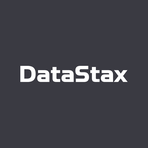The Rise of AI in Software Development and Legal Tech: A New Era of Efficiency
October 16, 2024, 4:24 pm

Location: United Kingdom, England, City of London
Employees: 201-500
Founded date: 2012
Total raised: $115M

Location: Netherlands, North Holland, Amsterdam
Employees: 1001-5000
Founded date: 2013
Total raised: $4.31B

Location: United States, California, Santa Clara
Employees: 501-1000
Founded date: 2010
Total raised: $302M
The digital landscape is shifting. Two major players, OutSystems and DISCO, are leading the charge with groundbreaking AI technologies. Their innovations promise to redefine how software is developed and how legal professionals operate.
OutSystems recently unveiled Mentor, a revolutionary AI-powered application generation tool. This platform aims to streamline the software development lifecycle (SDLC) using low-code and generative AI. Imagine a world where developers can create full-stack applications in mere minutes. Mentor makes this a reality. It combines the speed of AI with the rigor of traditional development practices.
At the 2024 ONE Conference in Amsterdam, OutSystems CEO Paulo Rosado introduced Mentor, previously known as Project Morpheus. This digital worker transforms app development into a competitive advantage. It automates app generation, quality checks, and monitoring. Developers can now focus on creativity rather than mundane tasks.
The statistics are compelling. A staggering 93% of executives plan to boost their investment in AI solutions. The demand for speed and efficiency is palpable. However, speed can lead to pitfalls like technical debt and security vulnerabilities. Mentor addresses these concerns. It ensures that applications are built correctly from the outset.
The platform employs a “shift-left” approach. This means developers can engage earlier in the process. They can prototype ideas and refine designs before diving into full-scale development. Users simply describe their app vision, and Mentor generates an initial version. This includes front-end functionality, data models, and embedded business logic.
Mentor’s capabilities don’t stop there. It allows for effortless iteration and evolution of applications. AI-powered suggestions enable continuous improvement. Additionally, developers can embed AI agents within apps, enhancing user interactions without coding. This is a game-changer for app development.
The AI-driven code reviews ensure that applications meet the highest standards. This includes security, performance, and long-term maintainability. Mentor tackles common challenges in software development, such as orphaned code and poor quality. It empowers teams to harness the full potential of AI-driven development.
Meanwhile, in the legal tech arena, DISCO has launched its Cecilia AI Platform in Europe. This platform is designed to tackle the complexities of modern litigation. With massive amounts of data to sift through, Cecilia offers a suite of generative AI tools. These tools help legal professionals quickly identify and analyze relevant documents.
Cecilia’s features include Q&A capabilities and document summaries. Legal teams can now review datasets that once took days or weeks in just hours. This efficiency is crucial in a field where time is often equated with money.
DISCO’s Chief Product Officer emphasized the importance of these tools. They allow attorneys to focus on high-value strategic work. The legal landscape is evolving, and DISCO is at the forefront of this transformation.
Cecilia Q&A acts as an AI fact expert. It integrates seamlessly within a user’s eDiscovery database. Unlike general-purpose models, it provides answers based solely on the specific data within a client’s database. This ensures accuracy and relevance.
The single-document version of Cecilia Q&A allows attorneys to interrogate individual documents. They can ask questions in natural language and receive precise answers. This feature is particularly beneficial for documents in different languages.
Cecilia also offers on-demand summaries of lengthy documents. This capability is invaluable for busy legal professionals. It simplifies fact-finding and enhances the review process.
Both OutSystems and DISCO are harnessing the power of generative AI. They are not just keeping pace with technological advancements; they are setting the standard. The implications for businesses and legal practices are profound.
As these technologies mature, we can expect further innovations. OutSystems plans to expand Mentor’s capabilities, while DISCO aims to introduce more tools in 2025. The future of software development and legal tech is bright.
In conclusion, the rise of AI in these sectors is more than a trend. It represents a fundamental shift in how work is done. Efficiency, accuracy, and speed are no longer optional; they are essential. Companies that embrace these changes will thrive. Those that resist may find themselves left behind.
The digital revolution is here. Embrace it, or be prepared to watch from the sidelines. The future is now, and it’s powered by AI.
OutSystems recently unveiled Mentor, a revolutionary AI-powered application generation tool. This platform aims to streamline the software development lifecycle (SDLC) using low-code and generative AI. Imagine a world where developers can create full-stack applications in mere minutes. Mentor makes this a reality. It combines the speed of AI with the rigor of traditional development practices.
At the 2024 ONE Conference in Amsterdam, OutSystems CEO Paulo Rosado introduced Mentor, previously known as Project Morpheus. This digital worker transforms app development into a competitive advantage. It automates app generation, quality checks, and monitoring. Developers can now focus on creativity rather than mundane tasks.
The statistics are compelling. A staggering 93% of executives plan to boost their investment in AI solutions. The demand for speed and efficiency is palpable. However, speed can lead to pitfalls like technical debt and security vulnerabilities. Mentor addresses these concerns. It ensures that applications are built correctly from the outset.
The platform employs a “shift-left” approach. This means developers can engage earlier in the process. They can prototype ideas and refine designs before diving into full-scale development. Users simply describe their app vision, and Mentor generates an initial version. This includes front-end functionality, data models, and embedded business logic.
Mentor’s capabilities don’t stop there. It allows for effortless iteration and evolution of applications. AI-powered suggestions enable continuous improvement. Additionally, developers can embed AI agents within apps, enhancing user interactions without coding. This is a game-changer for app development.
The AI-driven code reviews ensure that applications meet the highest standards. This includes security, performance, and long-term maintainability. Mentor tackles common challenges in software development, such as orphaned code and poor quality. It empowers teams to harness the full potential of AI-driven development.
Meanwhile, in the legal tech arena, DISCO has launched its Cecilia AI Platform in Europe. This platform is designed to tackle the complexities of modern litigation. With massive amounts of data to sift through, Cecilia offers a suite of generative AI tools. These tools help legal professionals quickly identify and analyze relevant documents.
Cecilia’s features include Q&A capabilities and document summaries. Legal teams can now review datasets that once took days or weeks in just hours. This efficiency is crucial in a field where time is often equated with money.
DISCO’s Chief Product Officer emphasized the importance of these tools. They allow attorneys to focus on high-value strategic work. The legal landscape is evolving, and DISCO is at the forefront of this transformation.
Cecilia Q&A acts as an AI fact expert. It integrates seamlessly within a user’s eDiscovery database. Unlike general-purpose models, it provides answers based solely on the specific data within a client’s database. This ensures accuracy and relevance.
The single-document version of Cecilia Q&A allows attorneys to interrogate individual documents. They can ask questions in natural language and receive precise answers. This feature is particularly beneficial for documents in different languages.
Cecilia also offers on-demand summaries of lengthy documents. This capability is invaluable for busy legal professionals. It simplifies fact-finding and enhances the review process.
Both OutSystems and DISCO are harnessing the power of generative AI. They are not just keeping pace with technological advancements; they are setting the standard. The implications for businesses and legal practices are profound.
As these technologies mature, we can expect further innovations. OutSystems plans to expand Mentor’s capabilities, while DISCO aims to introduce more tools in 2025. The future of software development and legal tech is bright.
In conclusion, the rise of AI in these sectors is more than a trend. It represents a fundamental shift in how work is done. Efficiency, accuracy, and speed are no longer optional; they are essential. Companies that embrace these changes will thrive. Those that resist may find themselves left behind.
The digital revolution is here. Embrace it, or be prepared to watch from the sidelines. The future is now, and it’s powered by AI.